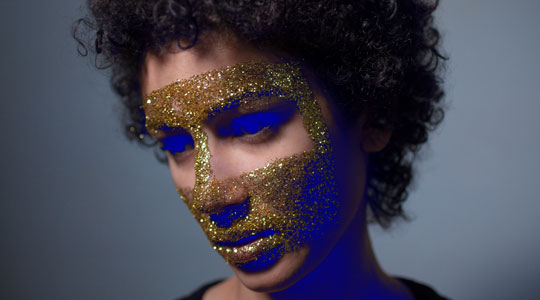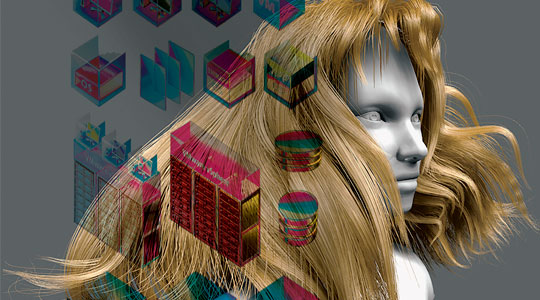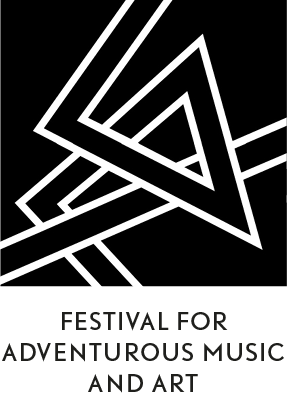CTM 2016 Radio Lab
Commissioned Works

Returning for a third edition, the CTM 2016 Radio Lab is dedicated to exploration and experimentation within the medium of radio. The Lab programme will two projects commissioned by Deutschlandradio Kultur - Hörspiel/Klangkunst and CTM Festival, in collaboration with the Goethe-Institut, the SoCCoS - the Sound of Culture, the Culture of Sound initiative, ORF musikprotokoll im steirischen herbst, and Ö1 Kunstradio.
The CTM 2016 Radio Lab Open Call for works sought unusual ideas for pairing the specific artistic possibilities of radio with the potentials of live performance or installation, that also explore the CTM 2016 Festival theme: New Geographies. The two selected works will premiere at CTM 2016, and subsequently be broadcast via Deutschlandradio Kultur as well as presented by the ORF (Austrian National Broadcasting Corporation).
Deena Abedlwahed - "All Hail Mother Internet"

Issuing from the Tunisian alternative music scene, with strong foundations as a funk and jazz singer, Deena Abdelwahed has been exploring the realm of electronic music since 2011. With her proposed project, “All Hail Mother Internet”, Abdelwahed asks “How would I have ended up without having access to internet when I was a teenager?” as a starting point to explore frustrations about feeling fixed by the constraints of a pre-defined culture, place, identity, and the strategies employed to tackle them – be it by either simply defending the believed identity, or being deafened by loneliness after consuming endless art and ideas online. Taking off from her personal memories as a teen living in a conservative Muslim country and the hopes and upheaval of the Arab Spring, Abdelwahed blends her own interpretations of Arabic popular music repertoire with a vision of a futuristic club scene and its global aspirations.
“Deena's proposal to send a ‘prayer’ to the Internet resonated with me,” explains jury member Antye Greie-Ripatti. “I relate to the idea of utopia and the possibility of freedom even after the internet has proven to become more and more of a mirror of the real world where corporations rule, inequality is created, bullying and transparency cock-fights are taking place as we speak. There is also a large void of female Arabic voices and this is why it is immensely important to present Deena’s story and point of view in the vast digital space. When we listened to Deena’s demo, I could hear a strong sense of belonging, Arabic identity and also reconsiliation through the sound of a global upcoming generation.”
Marija Bozinovska Jones aka MBJ Wetware w J.G. Biberkopf - "GAD Technologies"

“GAD Technologies” is a project by Marija Bozinovska Jones aka MBJ Wetware, an artist emplying technology and that is active in London and her native Macedonia. Bozinovska Jones proposes a collaboration with J.G. Biberkopf, an emerging Lithuanian producer whose “Ecologies” EP recently launched Kuedo’s KNIVES label. As a verb, gad is defined as “to move from one location to another in an apparently random and frivolous manner”. It is also an abbreviation for General Anxiety Disorder. Floating in a virtual realm where cultural markers, gender, position and race are symbolic and arbitrary, and where subjectivity becomes divorced from the constraints of locality, “GAD Technologies” intends to add to existing geopolitical complexities and representations. Flattening out global symbols in an aesthetic of fluid global hypercirculation, GAD explores fictional geographies by harvesting the overflowing streams of collective imagery. The project also engages with the decentralised nature of emergent self organised networks that fall outside established power structures and draws attention to communities underrepresented on the global map, while examining concerns about erasure of privacy and the utopian promise of democracy and freedom through the potential for self-publishing on the plethora of the internet’s platforms. “GAD Technologies” will take shape as a live audiovisual laser performance for CTM 2016, and a radio bricolage clashing local with global for the subsequent broadcast on Deutschlandradio Kultur.
Jury member Richard Thomas comments: “GAD Technologies is in some ways the other side of the coin to Abdelwahed's utopic proposal, in that it laughs in the face of the garish vulgarities of accelerated networked capitalism. Yet it does so with serious intent and does not downplay the enormous potential for human liberation that such technologies enable. I was impressed by the humour and very nowness of the examples provided. MBJ Wetware and JG Biberkopf use bricolage to describe and caricature a space that is itself a Bosch-esque bricolage. Their proposal General Anxiety Disorder is strange and fun and indisputably apposite to our time.”
Partners
Deutschlandradio Kultur – Hörspiel/ Klangkunst
The weekly “Klangkunst” ("Sound Art") broadcast (formerly “Hörspiel Werkstatt” (“Radio Play Workshop”) was launched in January 1995 by Deutschlandradio Kultur, German National Radio’s cultural programme. The broadcast was established to extend the formal possibilities of radio play, to experiment with new genres, and to introduce listeners to outstanding examples of international sound art. The programme covers the entire range of new radio art, from experimental sound play to poetry, text-sound collages, soundscapes, multilingual compositions, and electronic and digital radio performances. International networking and exchange among international radio artists are critical dimensions of the programme. Klangkunst is understood as a laboratory for testing the widest possible range of sounds. The programme draws from the varied motifs of diverse sonic environments, creating new amalgams of sound dramaturgy, narrative structures, compositional arcs, and characteristics of radio as a medium. Klangkunst is a member of the Ars Acoustica group of the European Broadcasting Union (EBU).
→ dradio.de/dkultur/sendungen/klangkunst/382602/
Goethe-Institut
The Goethe-Institut is the Federal Republic of Germany’s worldwide cultural institute. It promotes knowledge of the German language abroad and fosters international cultural cooperation. The Goethe-Institut provides a comprehensive picture of Germany by disseminating information on the country’s cultural, social, and political life. Through a network of Goethe-Institut offices, centres, cultural societies, and reading rooms / language examination and learning centers, the Goethe-Institut has promoted worldwide cultural and educational policy for over sixty years.
SoCCoS – the Sound of Culture, the Culture of Sound
SoCCoS – Sound of Culture, Culture of Sound, is a residency and research network engaging with exploratory music, sound art, and culture. Comprised of members AiR Laboratory (Warsaw), Binaural/Nodar (Sul), Hai Art (FI), Q-O2 (BE), and DISKBerlin (CTM Festival, DE), it provides residency opportunities via exchange of artists, cultural workers, and theorists. Through the residencies, SoCCoS aims to offer time and space away from known environments and everyday routines, to discover new sites, different cultures of sound art and source materials, in order to develop special skills and expand artistic networks. The project focuses on language, differences in urban and rural environment, and work with local communities. It emphasizes a structuralist approach in relation to sound art residencies, connecting different sound art practices, geo-social contexts, and art production typologies. It has a strong focus on research, elaborating on geography, culture, sound, language and site-specificity.
→ http://soccos.eu
ORF musikprotokoll im steirischen herbst
Austria’s Festival Platform for Contemporary and Experimental Music. Functioning as a kind of laboratory, musikprotokoll invites the audience to embark on an exploratory journey to discover the latest developments and trends in music, with all the artistic risks that this entails. From orchestral music with the ORF Radio Symphonieorchester Wien to chamber music, from live performances to sound installations, musikprotokoll highlights a wide range of intriguingly heterogeneous forms and genres and presents works that are for the most part developed and produced specifically for the festival.
Founded by Emil Breisach in 1968, musikprotokoll is organised annually by ORF (Austrian Broadcasting). It is a co-production of the ORF’s two stations, Radio Österreich 1 (Ö1) and Radio Steiermark, which broadcast presented works in cooperation with the steirischer herbst festival.
Ö1 Kunstradio
Ö1 Kunstradio has dedicated itself to experimental radio art since 1987, with online editions available as of 1995. The show has featured many artistic projects which crosslink radio with tangible, intangible, and public spaces, giving artists an entry point and platform for public radio production and broadcasting.
Partners & Funders

Presenting Partner


